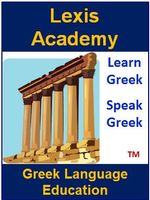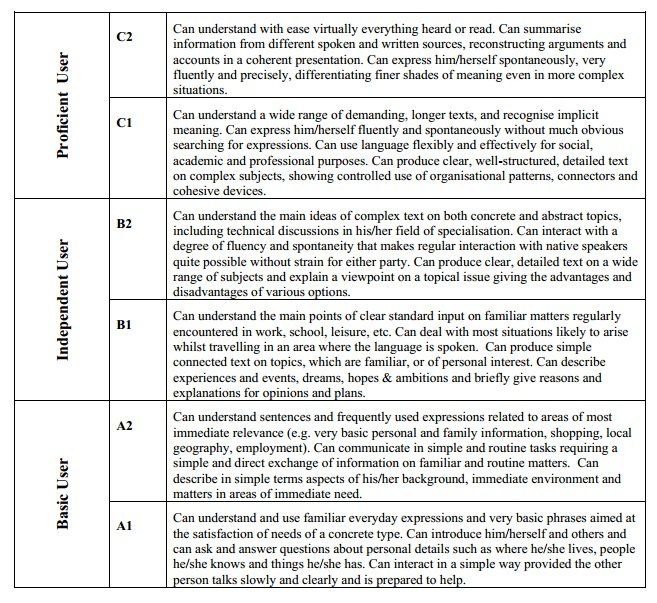
Our Instructional Services, Methods and Learning OutcomesComplete suite of online, distance education and in-classroom Greek Language learning solutions
The success of our students
is the result of their personal diligent and continuous efforts to learn Greek. This progress is also based on our 30 years of experience in teaching Greek. We are focused on using competent Second-Language Acquisition instructional methodologies, vigorous distance education and e-Learning practices, excellent textbooks supplemented by our own internal high-quality learning resources, placement tests, and continuous proficiency development assessments.
1] Classroom instruction in small groups, to ensure maximum student engagement,
interaction, and active participation.
2] Distance education and online e-Learning services include:
• E-Books
• Podcasts
• CD-ROMs
• E-Learning
• Audio Books
• Multimedia Courses
• Tele Video Technologies
• Self-Paced Home Study
• Virtual Conversation Simulations
• Online Testing and Assessment
• Real-time Web Conferencing
• LEXISPLACER™ Greek Language Fluency Placement Tests
• LEXISLEAP™ Greek Language Evaluation and Achievement Examinations
3] Our instructional methodologies are solidly rooted in the following experiential principles of language
learning:
• Versatility and flexibility.
• Encouragement of creativity and discovery.
• Opportunities for all course participants to feel and become successful.
• Interactive lessons with hands-on activities and active learning.
• Accommodation of the needs of students at different levels of ability.
• Integration of language skills, thinking skills, and content knowledge.
• Continuous quality improvement and support of the core curriculum.
3] Instructional content is composed of effective textbooks and workbooks, along
with additional authentic resources, such as:
• Authentic materials from Greek newspapers and periodicals.
• Authentic materials from Greek newspapers and periodicals.
• Podcasts of audio recordings, including audio texts and dialogs, vocabulary lists and glossaries, interactive listening and speaking exercises, and grammar drills.
4] A key part of our instructional services is the consistent and continuous application of Second Language Acquisition instruction and assessment strategies, including Common European Framework
of Reference for Languages (CEF) that has been established by the European Council.
This international standard identifies key competencies in language learning that educators use to build curricula and testing materials. Language learners also use this information for purposes of establishing personal learning plans and engaging in self-assessments.
The Common European Framework sets the groundwork for official examinations that European, and other, countries can implement. For example, Alliance Francaise provides national examinations for French, Goethe Institut for German, Instituto de Cervantes for Spanish, and CELI for Italian. Πιστοποίηση Ελληνομάθειας (Certificate of Attainment in Greek) is the national examination for Greek.
The Common European Framework organizes communicative fluency into six levels:
A1, A2, B1, B2, C1, C2, described below. The A-Levels are at the Beginner grade of fluency, B-Levels are associated with the Intermediate body of knowledge , and C-Levels encompass Advanced to Superior proficiency.
COMMON EUROPEAN FRAMEWORK OF REFERENCE FOR LANGUAGES
12-Step Guide to Learning Greek through Immersion
A Better Way to Learn Greek - Ένας Καλύτερος Τρόπος για να Μάθετε Ελληνικά
Surround Yourself with Anything and Everything in Greek
1]
Speak without fear of making a mistake. It is alright to make mistakes when learning a new language or anything else.
2]
Use books, audio CDs, especially the internet, and any other resource that you can find.
3]
Surround yourself with Greek.
4]
Watch Greek TV, news broadcasts, shows, videos, movies.
5]
Spend some time in Greece.
Develop Disciplined Study Habits as You Practice, Practice, Practice
6]
Listen to native speakers as much as possible. Use online resources. And,
speak Greek with other Greek speakers.
7]
Listen to Greek music. Learn the lyrics, sing along. And, try to dance.
8]
Develop disciplined study habits.
Remember that one hour of class time requires two hours of preparation. Create vocabularies, read aloud, keep good notes. And, keep on practicing.
Work with an Experienced Bilingual Greek Teacher
9]
Do exercises, take tests.
10]
Record yourself as you read a passage, listen to your voice.
11]
Work with a bilingual and experienced native Greek teacher who has solid understanding of both English and Greek.
12]
Keep reminding yourself of the reasons you are studying Greek. Your motivation becomes a compass and a force that will sustain your pursuit of full mastery force.
It is all Greek to us
Knowing a few Greek words can certainly be helpful when you visit Greece. But your stay can be more enjoyable if you are able to communicate more effectively.
Beyond a conversation that involves a casual interchange at a restaurant or a museum in Greece, our students develop a higher level of fluency, the kind of proficiency that will enable you to express yourself to native Greek speakers in your own individual and more meaningful way.
All you need to do is find and affirm the reason for learning Greek, make a commitment to yourself to start and thereafter actively remain engaged in learning, and contact us to get started on this journey of the mind and the heart.
Business Hours
- Mon - Sat
- -
- Sunday
- Closed



